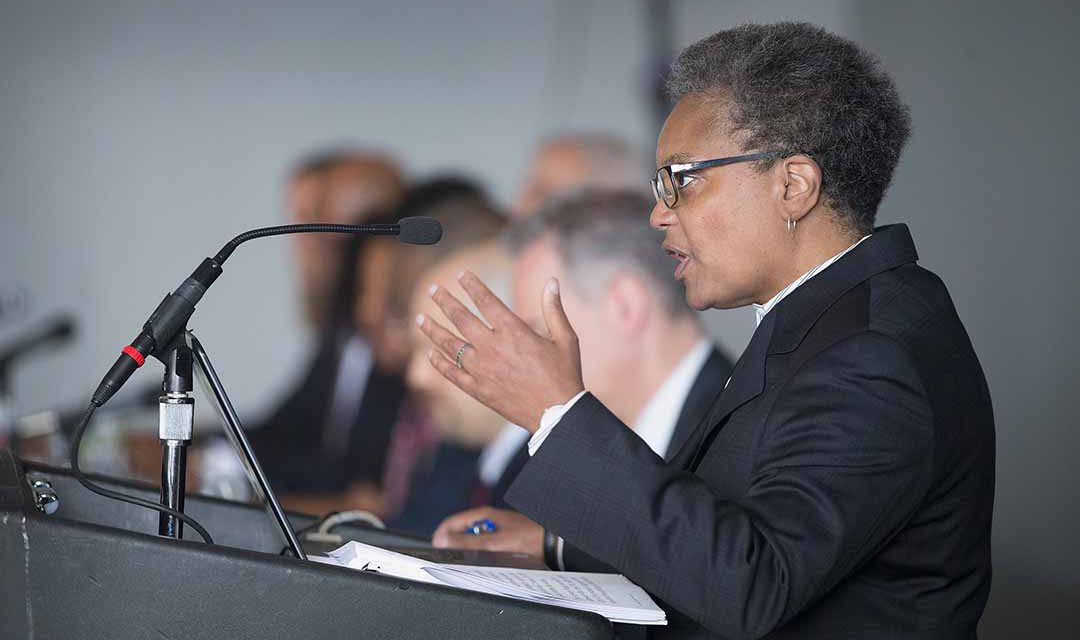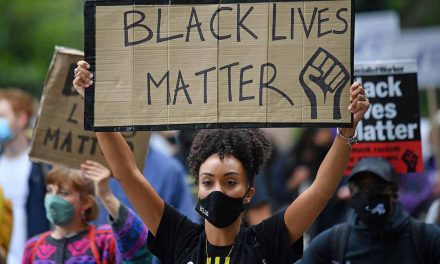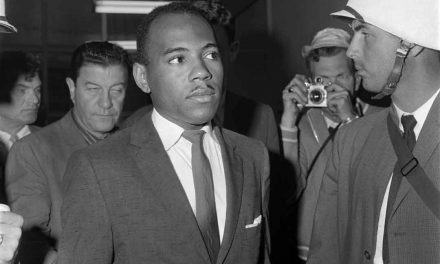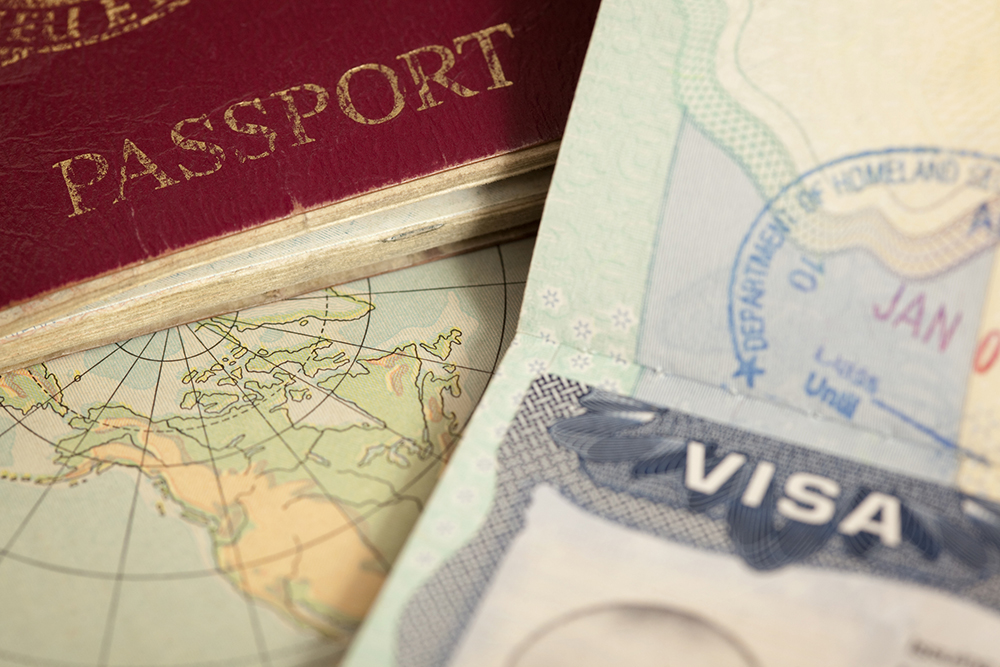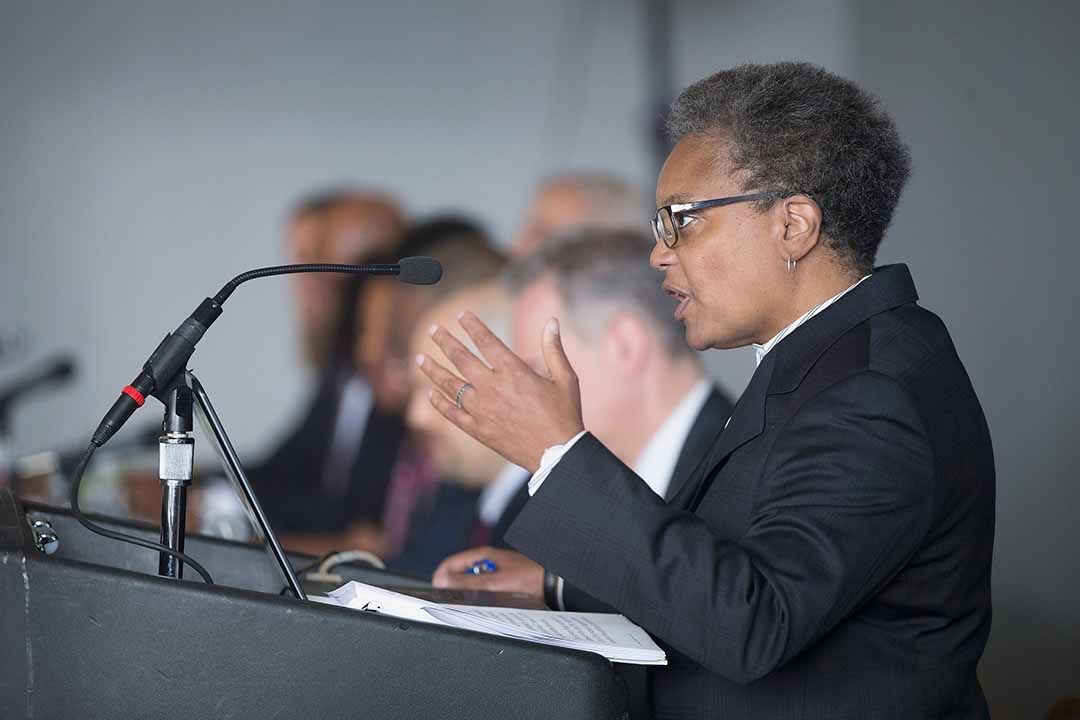
Lori Lightfoot, chair of the Chicago Police Board, addresses community leaders and members of the news media about the findings of the Police Accountability Task Force on April 13, 2016 in Chicago, Illinois. The task force found the Chicago Police Department was plagued by systematic racism and had lost the trust of the community. PHOTO AFP
Social distancing and mass quarantine have added to racial stereotyping and stigmatisation
Those who contend that a pandemic is a great equaliser, affecting both rich and poor of every race, would do well to delve deeper into the facts. In April this year, the mayor of Chicago in the USA, Lori Lightfoot, announced that although black people make up less than a third of the city’s population, they accounted for 72,2% of virus-related fatalities. In Louisiana, reports in the same month showed that 70% of coronavirus victims were black. These are just two examples showing that although social distancing and mass quarantine target entire populations, the outcomes reflect great inequality.
Although social distancing and mass quarantines target entire populations, the outcomes reflect great inequality.
The reasons for these and other societal disparities are studied by scholars in the emerging academic field of African diaspora – the study of Africans settled in places other than their ancestral homelands, and the communities that emerge from such migration.
There are, of course, other diasporas.
When humans of any race move from their ancestral locations, driven by instinct and the need to hunt for food, to find better shelter or other means of survival, this migration could lead to a diasporic community settled elsewhere. If people were always comfortable in their original homes and if migration was always a choice, there may not be any need for scholars to devote their time to the field of diaspora, whether African or other.
Migrations leading to diaspora also do not take place in a vacuum. Many external factors are responsible for people migrating from their ancestral homes, either individually or in groups, to other parts of the world. Enslavement, bad governance, corruption, man’s inhumanity to man and colonisation are just some of these factors.
Slave trade resulted in the forced migration of millions of Africans to America and Europe, leading to a high concentration of enslaved Africans in other colonies. The direct descendants of enslaved African people in the United States are referred to as old diaspora, and new diaspora are those who voluntarily migrated. New African diaspora had their own share of home- grown experiences that led to their voluntary migration. Chief among these are bad governance, corruption, unemployment, kidnapping, poverty, robberies and the need for a better future. Failure of leadership resulting in an insecure socio-political and economic environment compelled most of these migrants to leave the shores of Africa in search of greener pastures.
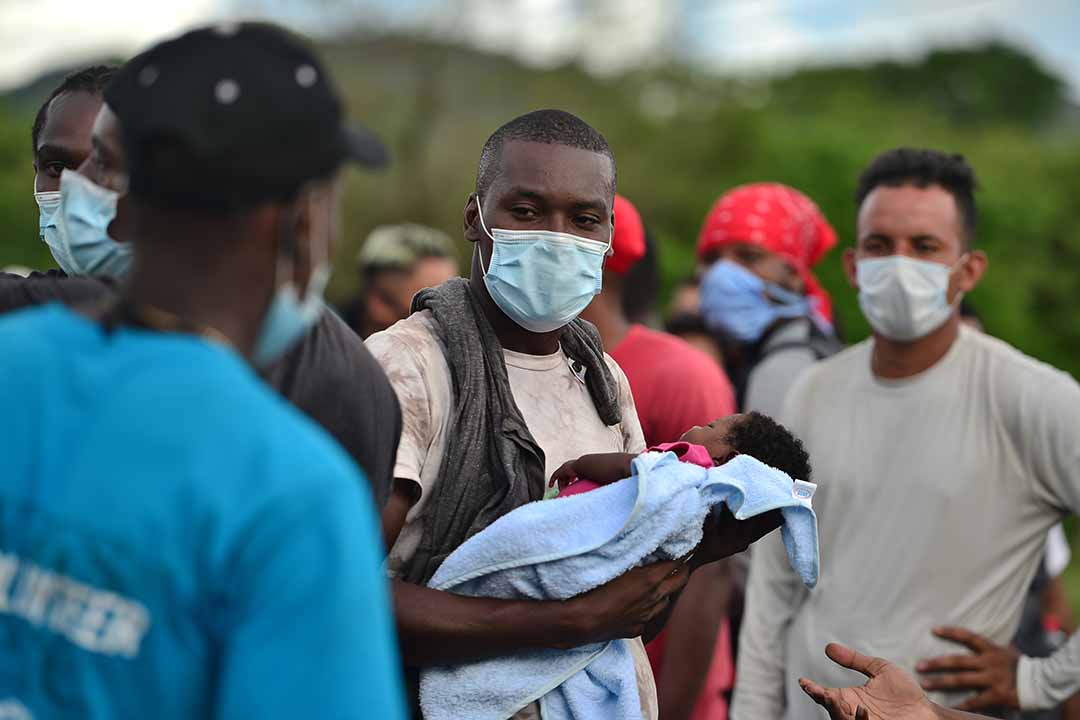
Members of a caravan of migrants from DR Congo, Ghana and Ivory Coast remain on the Pan-American highway after being stopped by agents of the Honduran National Police near Choluteca, as they were heading to Tegucigalpa to make a stop on their way to Mexico, in Honduras on June 2, 2020 amid the Covid-19 coronavirus pandemic. (Photo by ORLANDO SIERRA / AFP)
And when they arrive, lack of comprehensive integration and discrimination are at the core of the challenges confronting diaspora worldwide.
The divide between black and white people in the US has been deepened by the measures adopted to contain the virus.
Before the outbreak of COVID-19, both old and new African diaspora had been subjected to racial stereotyping, stigmatisation, prejudice and discrimination in the US, as shown by several studies. A study by Villanova
University in Pennsylvania in 2007 observed that America is notorious for stereotyping black people, especially males, as criminals. Another, published in the American Journal of Political Science in 1997, showed that black women are stereotyped as dominant and lazy, and that the belief exists that they want to live on welfare. Yet other studies have shown that black people are subject to discrimination and prejudice in the spheres of education, employment, housing and more.
With the outbreak of the pandemic, African diaspora have been facing increased challenges in America. The pandemic is certainly not responsible for the political, economic and geographic divide between white and black people in the US, but the divide was deepened by the measures adopted to contain the virus. Social distancing and mass quarantine added to the already-existing rights violations associated with racial stereotyping and stigmatisation, while the patterns of infection and death reflect long-existing social inequalities.
The pandemic has changed and continues to change everything in life, from political and economic aspects to social, cultural and family ties. People have become strangers, even in their own families. Friends are no longer welcomed by friends, families avoid relatives as though they are strangers and employees are no longer allowed in their workplaces. These challenges heighten discrimination and the fate of both the old and the new African diaspora, given their experiences prior to the pandemic.
And, as the numbers show, the impact on African-Americans is greater than on white people. There are many contributing factors one could fathom. Whereas white Americans live mainly in middle class neighbourhoods, many African-Americans live in slums and highly populated areas, as do other people of colour who are often poor and disadvantaged. This makes them more vulnerable to contracting and spreading the virus, as COVID-19 spreads faster through personal contact.
Given the fact that the negative outcomes of social distancing and mass quarantine weighs more heavily on African-Americans, and that the African diaspora in America have a history of being stereotyped and stigmatised, one can confidently say that the COVID-19 pandemic has compounded the problems besetting them. And, even if an opportunity were to arise for them to go back to their ancestral homes, the measures adopted in the fight against the pandemic means they will likely be rejected by their own people.

